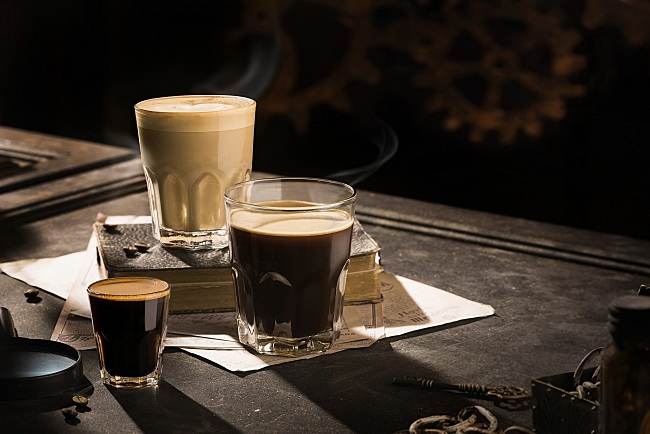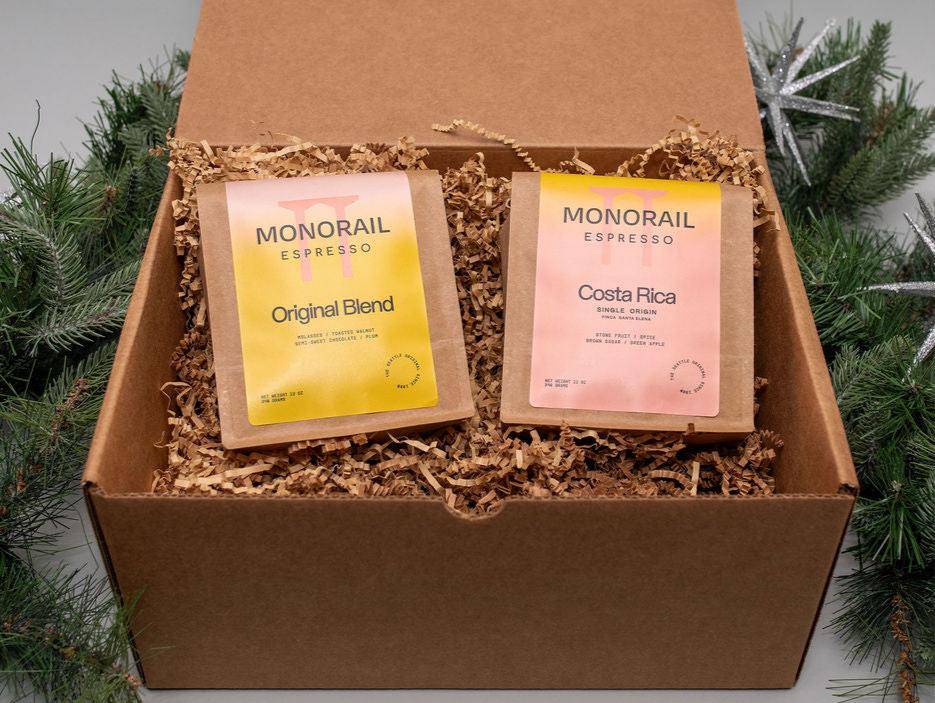SOE Single Origin Espresso – Showcasing Flavors from One Region
SOE Single Origin Espresso – Showcasing Flavors from One Region
Blog Article
Recognizing Coffee Beans: the Trip From Coffee to Blended Coffee Beans

The Origins of Coffee: An International Viewpoint
While you might assume of coffee as a modern staple, its beginnings trace back centuries, linking with cultures across the globe. The story starts in Ethiopia, where legend says a goat herdsman named Kaldi discovered the invigorating impacts of coffee beans after noticing his goats romping vigorously after consuming them.
As trade paths increased, coffee made its method to Europe in the 17th century, rapidly obtaining appeal. Each culture added its unique spin to coffee preparation, enriching its background.
Growing and Harvesting of Espresso Beans
As coffee's trip evolved, the emphasis moved to the cultivation and harvesting of particular bean selections, particularly those made use of for coffee. You'll locate that espresso beans frequently originate from Arabica or Robusta plants, each offering unique tastes. The ideal expanding conditions consist of high altitudes and abundant, well-drained soil, which enhance the beans' top quality.
Throughout the harvest, selecting techniques vary. Timing is vital; you want to collect when the cherries get to peak ripeness for optimum flavor.
As soon as harvested, the beans are planned for handling, which is essential in identifying their final preference. Understanding the growing and collecting procedures gives you insight right into what enters into your favored coffee, enhancing your appreciation for each mug.
Processing Approaches: From Cherry to Bean
Since you have actually learned concerning collecting coffee beans, let's explore exactly how those cherries change right into the coffee beans you enjoy. You'll see just how different harvesting methods effect taste, complied with by the vital steps of fermentation and drying out. Lastly, we'll break down the milling and grading procedure that determines your coffee's high quality.
Gathering Techniques Discussed
When it comes to coffee, recognizing harvesting techniques is important, because they directly impact the taste and quality of the beans you enjoy. Careful selecting entails hand-picking just ripe cherries, guaranteeing you obtain the finest quality beans. Inevitably, the choice of collecting strategy can substantially influence your coffee experience, so it's worth recognizing just how those beans made it to your cup.
Fermentation and Drying Out
After collecting, the next action in processing coffee beans play a considerable duty in shaping their taste. You'll find that fermentation is vital, as it assists damage down the mucilage surrounding the beans, improving their preference profile. Depending upon the technique, this process can last from a couple of hours to several days, with varying outcomes based on temperature and moisture.
Sun-drying permits the beans to absorb tastes from the setting, while mechanical drying out assurances regular dampness degrees regardless of weather. Appropriate drying is crucial to stop mold and mildew and preserve the beans' high quality, eventually influencing your cup of coffee.
Milling and Grading Refine
As fermentation and drying out established the stage for taste development, the milling and grading process assurances that only the finest coffee beans make it to your cup. This stage entails getting rid of the outer layers of the coffee cherry, including the parchment and husk. After milling, the beans are sorted by dimension and weight, ensuring an uniform quality. You'll find that grading helps determine defects and classify beans, which influences flavor and scent. High-quality beans obtain a higher grade, leading to a richer coffee experience. When rated, the beans are ready for packaging and delivery, protecting their unique qualities. This precise procedure is essential for delivering the outstanding taste you appreciate in every sip of your favorite brew.
Roasting Techniques: Opening Taste Potential
When you roast coffee beans, the technique you choose can significantly impact the flavor account. Recognizing the relationship in between time, temperature level, and toasting methods is crucial to revealing the possibility of your mixture. Let's discover just how these elements collaborated to produce the best cup.
Roasting Approaches Explained
While you may assume that all coffee roasting techniques generate the same outcomes, the truth is that each technique exposes distinct taste capacities in the beans. You can select in between approaches like drum roasting, air roasting, or even traditional frying pan roasting. Drum toasting makes use of a revolving drum to evenly distribute warmth, enhancing caramelization and generating a well balanced flavor. Air roasting, on the various other hand, distributes hot air around the beans, promoting a lighter roast with noticable acidity. Pan roasting permits for hands-on control however calls for constant focus to stay clear of burning. Each method has its nuances, so trying out various techniques can aid you discover the best roast that aligns with your taste preferences. Delight in the journey of discovering your suitable mug!

Effect On Taste Profile
Different toasting methods not only affect the process however also considerably impact the taste account of the coffee beans. When you choose a light roast, you'll experience bright level of acidity and flower notes, showcasing the bean's origin. In contrast, a medium roast balances acidity with sweet taste, frequently disclosing chocolatey touches. Dark roasts, on the other hand, draw out strong, smoky flavors, often Full Article masking the bean's one-of-a-kind qualities. Each method exposes different oils and substances, resulting in a large range of tastes. By experimenting with numerous roasting designs, you can uncover which accounts resonate with your palate. Recognizing these subtleties aids you appreciate the artistry behind your mug of coffee, improving your general experience with every sip.
Time and Temperature Factors
To launch the full flavor capacity of coffee beans, both time and temperature level throughout the roasting process play considerable duties. When toasting, you'll locate that higher temperature levels can promptly create flavors, yet if you rush it, you may wind up with burned notes. Alternatively, reduced temperature levels permit an extra progressive taste growth, showcasing the beans' special qualities.

Timing is equally as essential; extending the roast also long can cause a loss of acidity and brightness, while also brief a roast might leave the beans underdeveloped. Finding that sweet spot requires practice and testing. By readjusting these factors, you can reveal the abundant, complicated tastes concealed within each bean, developing a truly remarkable coffee experience.
The Art of Mixing: Crafting Distinct Coffee Profiles

Beginning by choosing a base coffee that supplies a solid foundation. An intense Ethiopian bean can bring fruitiness, while a rich Brazilian coffee includes body.
As you blend, bear in mind that each combination informs a tale. You're not simply making coffee; you're developing an experience. So, take your time, preference regularly, and enjoy the journey of finding your signature blend.
Brewing Methods: How Prep Work Influences Flavor
Blending coffee opens up a domain name of taste opportunities, but exactly how you make that blend can substantially influence your last mug. Different developing techniques extract distinct tastes and fragrances, so it's essential to pick carefully. For example, a French press permits oils and sediments to remain, creating a rich, full-bodied experience. On the other hand, a pour-over highlights the coffee's clearness and brightness, ideal for showcasing delicate notes.
Coffee, with its high stress, generates a concentrated shot that emphasizes sweet taste and crema. If you choose a lighter mixture, think about a cold brew approach; it produces a smooth, less acidic taste.
Eventually, trial and error is vital. Adjusting variables like water temperature level, grind dimension, and brew time can transform your coffee's account. Accept the art of brewing to find the flavors hidden in your coffee blends. The right approach can boost your experience to brand-new heights.
The Future of Coffee: Sustainability and Development
As the coffee market develops, sustainability and technology are ending up being vital for dealing with ecological obstacles and conference consumer needs. You'll observe that even more coffee companies are taking on environmentally friendly techniques, from sourcing beans ethically to carrying out lasting farming methods. These shifts not just aid the world yet also improve the quality of the coffee you delight in.
You could see advancements like eco-friendly product packaging and water-saving developing approaches that decrease waste. Advanced modern technology, such as blockchain, is likewise coming to be prominent, guaranteeing openness in the supply chain, which permits you to map your coffee back to its origins.
On top of that, buying local look at these guys neighborhoods and sustaining farmers through reasonable profession campaigns promotes an extra sustainable coffee environment. As you sip your following cup, bear in mind that your options can contribute to a brighter future for coffee. By going with lasting brand names, you're not visit homepage simply taking pleasure in a drink; you're making a positive effect on the world.
Regularly Asked Questions
What Is the Distinction In Between Arabica and Robusta Beans?
Arabica beans are smoother, sweeter, and have a greater acidity, while robusta beans are more powerful, much more bitter, and contain even more high levels of caffeine. When brewing your coffee., you'll observe these distinctions in flavor and aroma.
How Does Altitude Affect Coffee Bean Taste?
Altitude impacts coffee bean taste considerably. Greater elevations create beans with brighter level of acidity and facility tastes, while reduced elevations frequently generate beans that are much heavier and less nuanced. You'll see these differences in your cup!
What Are the Health Advantages of Drinking Coffee?
Consuming alcohol coffee can improve your power, improve mental emphasis, and even improve physical efficiency. It's abundant in anti-oxidants, might reduce the danger of certain conditions, and can advertise a much healthier metabolic rate when eaten in small amounts.
Can Coffee Beans Be Recycled for Developing?
Yes, you can recycle coffee beans for developing, yet the flavor might be weak. If you enjoy trying out, try reusing them in various means, like chilly brews or contributing to smoothie mixes for an additional kick.
Exactly how Should I Store Coffee Beans for Freshness?
To maintain your coffee beans fresh, save them in an airtight container in a great, dark location. Prevent exposing them to light, moisture, or warmth, as these variables can quickly deteriorate their taste and scent.
Recognizing Coffee Beans: the Journey From Coffee to Blended Coffee Beans.
Currently that you have actually found out concerning gathering espresso beans, allow's discover just how those cherries change right into the coffee beans you love.When you roast coffee beans, the approach you choose can significantly affect the flavor profile - Single Origin Espresso.While you might assume that all coffee roasting techniques generate the same results, the fact is that each technique reveals one-of-a-kind taste potentials in the beans.Various toasting techniques not only affect the process however additionally significantly impact the taste profile of the coffee beans
Report this page